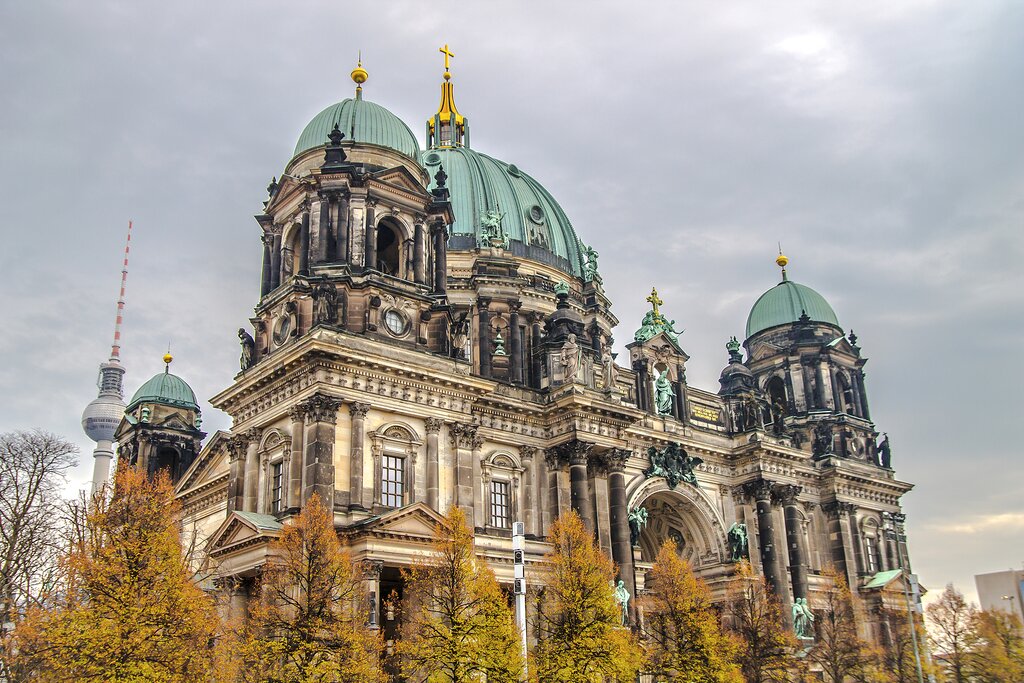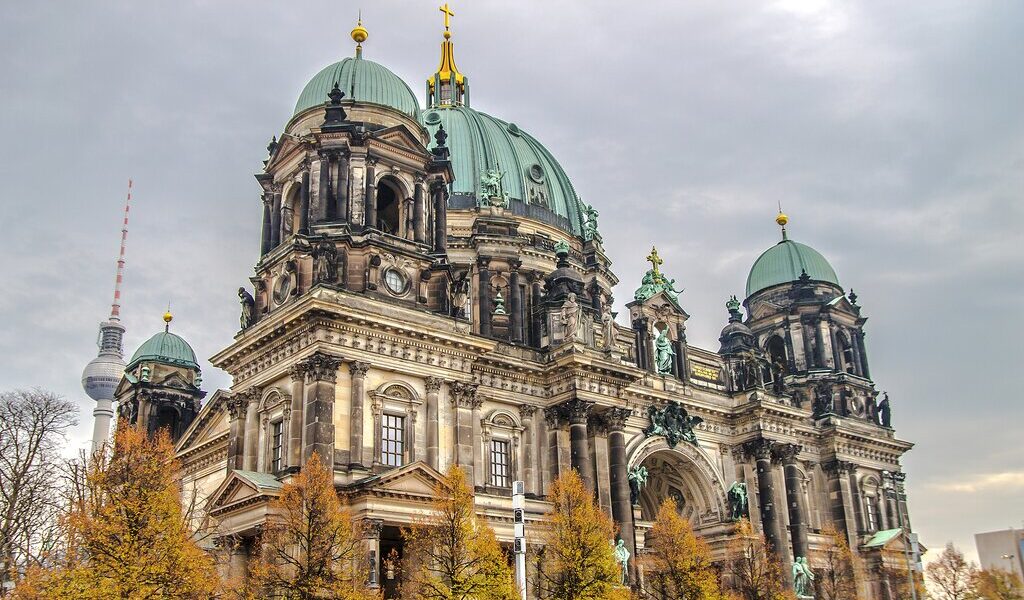
November is a quieter, colder time in Germany, but that doesn’t deter intrepid visitors who put on an extra layer to explore uncrowded cities and historic sights on foot. By the end of the month, things start picking up again when Christmas markets open all over the country (especially Berlin) for warm mugs of Glühwein.
## Exploring Germany in November: A Comprehensive Guide
November in Germany offers a unique travel experience, characterized by a distinct shift in weather, fewer crowds, and the burgeoning anticipation of the holiday season. This comprehensive guide delves into the specifics of traveling to Germany during this often-overlooked month, providing insights into weather conditions, costs, potential destinations, activities, and noteworthy events.
**Weathering the German Autumn in November**
Late fall in Germany translates to a noticeable decrease in sunshine hours and an increase in overcast days. Be prepared for a higher likelihood of precipitation, which may take the form of rain, sleet, or even snow, particularly as the month progresses. The southern regions, which may have enjoyed relatively mild temperatures in the preceding months, will experience a more pronounced drop in temperature during November. Daylight hours also diminish significantly, with early sunsets occurring before 4 pm towards the end of the month, a common characteristic of Northern Europe during this time of year.
However, for those who appreciate cozy and atmospheric weather, November in Germany embodies the true essence of *Herbst* (autumn). Locals embrace the season by donning warm sweaters, and bars and restaurants create inviting ambiances with an abundance of candles. The cities and countryside of Germany are also adorned with rich autumn colors, adding to the seasonal charm.
Temperature variations are to be expected depending on your chosen destination within Germany. In **Berlin**, the nation’s vibrant capital, the average daily high temperature hovers around 46°F (8°C), while the average daily low reaches 37°F (3°C). **Frankfurt**, situated in the southwestern part of Germany, is typically known as the warmest city, but even here, the temperature difference is minimal in November, with an average daily high of 48°F (9°C) and an average daily low of 39°F (4°C). If your travel plans include the southern **Bavarian Alps**, particularly near Germany’s highest peak, **Zugspitze**, be prepared for colder nighttime temperatures, with lows often dropping to 28°F (-2°C) and a high probability of snow. Conversely, the German coast along the North Sea and Baltic Sea will experience milder temperatures, accompanied by increased rain and wind.
Regardless of your destination within Germany, it is highly recommended to pack a warm winter coat and reliable rain gear to ensure your comfort and preparedness for the prevailing weather conditions.
**Navigating Crowds and Costs in November**
November presents an appealing opportunity for travelers seeking a more tranquil experience of Germany. With crowds significantly smaller than during peak season, you can enjoy a more peaceful exploration of the country before the Christmas holiday rush begins. November serves as a unique shoulder season month in Germany, shorter in duration compared to other European countries due to the preceding Oktoberfest celebrations in September and October and the subsequent commencement of Christmas markets in December.
Furthermore, travelers can benefit from lower rates on flights, accommodations, and various activities during November. However, it’s essential to be aware that some businesses and tourist destinations may adjust their operating hours or even close entirely for the winter season. Therefore, it is crucial to double-check the opening hours of restaurants, wineries, and other attractions before your visit to avoid any disappointment.
**Destination Inspiration: Where to Go in Germany**
With fewer daylight hours available, November is an ideal time to take advantage of Germany’s exceptional public transportation system, particularly its extensive network of regional and high-speed train routes, which often provide a faster alternative to driving.
A recommended starting point for your German adventure is the dynamic capital city of **Berlin**. Here, you can select from a variety of neighborhoods that cater to different tastes and preferences, ranging from the cosmopolitan atmosphere of **Mitte** to the trendy and alternative vibe of **Kreuzberg**. After spending several days exploring **Berlin** and perhaps taking a day trip or two to nearby attractions, consider a convenient two-hour train journey to **Hamburg**, where you can immerse yourself in the city’s intricate network of canals, explore its historic port, and attend a captivating concert at the renowned **Elbphilharmonie**.
Alternatively, you could opt for a short flight from the **Berlin-Brandenburg Airport** to **Munich**. From **Munich**, a plethora of adventures awaits, including day trips to historical cities such as **Nuremberg** and **Stuttgart**, or visits to picturesque resort towns nestled in the **Bavarian Alps**, offering breathtaking views of Germany’s highest peaks.
**Frankfurt**, home to one of the world’s busiest airports, provides convenient access to numerous day trips to enchanting castles and train routes that traverse nearby wine regions, relaxing spa towns, and countless charming villages and activities in the mountainous **Black Forest**.
For those who have always dreamed of experiencing the German autobahn, November offers an opportunity to do so without the heavy summer traffic. All autobahn routes are equipped with frequent and well-maintained service areas that provide fuel, restroom facilities, and restaurants. While November is likely the last month recommended for a scenic drive, especially at the beginning of the month, roads such as the **German Wine Road** and the **Romantic Road** offer unforgettable experiences. On the **Romantic Road**, consider traveling from north to south, culminating your journey at the magnificent **Neuschwanstein Castle**, perched atop a stunning hilltop.
**Experiences to Savor: What to Do in Germany**
Germany boasts an impressive array of world-class cities, and **Berlin** undoubtedly stands out as a must-visit destination. Allocate ample time to explore the city’s significant monuments, World War II historical sites, diverse museums, and distinct neighborhoods, whether on foot, by bike, via the U-Bahn, or even in a *Trabi*, an iconic car that originated during the communist era. A particularly noteworthy activity is taking a walk around the futuristic glass dome of the **Reichstag** building. **Berlin** also serves as an excellent base for various day trips by train, such as a visit to **Potsdam**, where you can stroll through the charming Dutch Quarter and tour the UNESCO-listed **Sanssouci Palace**, often referred to as the ‘Versailles of Germany,’ surrounded by vast acres of royal gardens.
For wine enthusiasts traveling to Germany’s 13 wine regions during the initial weeks of November, there may still be opportunities to participate in harvest celebrations or create your own self-guided tour. Many wineries offer walking tours that meander along well-marked trails, allowing you to combine exercise with the enjoyment of the scenic landscapes and wine tastings. Wineries in the southwest can also be combined with an overnight stay or two in a spa town along the French border, such as **Baden-Baden**, renowned for its thermal baths. Alternatively, you can find a spa town closer to Berlin at **Bad Saarow**.
The mountainous **Bavarian Alps** and the **Black Forest** provide numerous opportunities for outdoor adventures, ranging from fall and winter hiking and biking to early snow sports, should the season commence early.
**November Events to Note**
* **JazzFest, Berlin:** Held annually in early November at the Philharmonie, this festival attracts internationally renowned jazz artists and ensembles, showcasing a wide range of jazz styles from Big Band to contemporary jazz.
* **Winter DOM Festival, Hamburg:** This open-air amusement fair in Northern Germany has been a beloved tradition for families for centuries. The November/December edition of the Winter DOM Festival lasts for an entire month and offers a variety of attractions and entertainment.
* **Martinsfest, Rhineland:** St. Martin’s Day, celebrated in the Rhineland region, honors the 4th-century saint and shares similarities with Halloween, featuring kid-friendly decorations, costumes, and parades.
* **Christmas Markets, nationwide:** Towards the end of November, Germany begins its preparations for Christmas, and nearly every city hosts at least one Christmas Market. These festive markets typically open on the last weekend of November.
* **Tollwood Festival, Munich:** This alternative Christmas festival in Bavaria’s capital promotes social and environmental awareness through art, music, and theater. Tollwood commences at the end of November and presents its unique version of a Christmas market, offering fair trade clothing, arts, crafts, and organic food. Traditional treats such as *Glühwein* and bratwurst are also readily available.
This comprehensive guide provides a detailed overview of what to expect when traveling to Germany in November, allowing you to plan a memorable and enriching experience.
B-907

